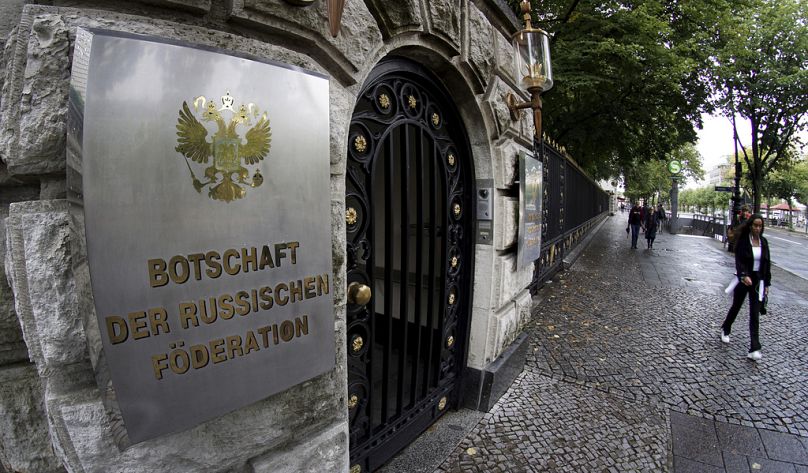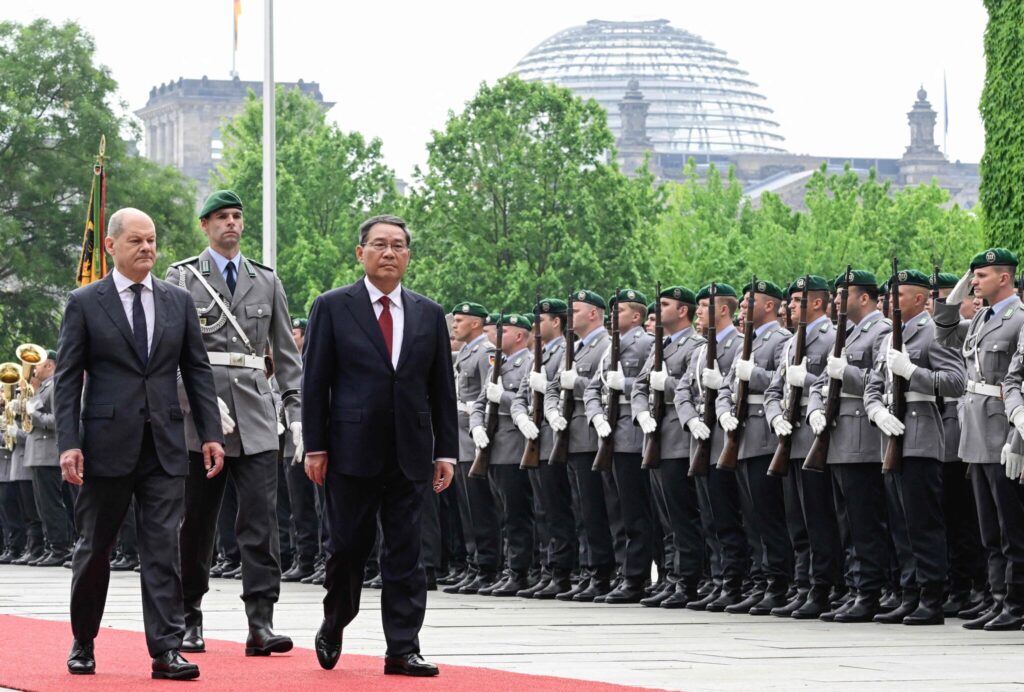With many of Russia’s intelligence officers kicked out of embassies in European capitals in the last 18 months, the Kremlin has resorted to other methods to keep their spy networks alive.
When three Bulgarian nationals were charged this week for their part in a spy plot, ripped from the pages of an Ian Fleming novel, it exposed the lengths that Vladimir Putin’s regime has to go to obtain potentially valuable information, and the risks it now has to take.
On the surface, the Bulgarians seemed almost unremarkable, each with very varied backgrounds which can be charted across their social media profiles.
Orlin Roussev’s LinkedIn profile states he owned a business involved in signals intelligence, which included the interception of communications or electronic signals. He also states that, earlier in his career, he acted as an advisor to the Bulgarian ministry of energy.
Katrin Ivanova says on LinkedIn that she works as a laboratory assistant for a private health business, while the BBC reports that Bizer Dzhambazov described himself as a driver for hospitals.
The pair ran a community organisation providing services for Bulgarians living in the UK, with the BBC reporting that this included familiarising them with the “culture and norms of British society”.
So what do these profiles tell us about the kind of spy work the Bulgarians might have been doing? First we have to look at the state of Russia’s intelligence gathering operations.
What kind of spies is Russia running?
Russia’s spy networks across Europe – and across the world – fit into four main categories:
- Russian spies working at foreign embassies posing as diplomats;
- Officials or politicians that Russia has managed to turn, and who get paid to provide information;
- Deep cover agents from Russia, known as “illegals”, who live seemingly normal lives (usually they would pass themselves off as from another country, and not usually say they are Russians), maybe running a business or raising their families, and keeping their cover sometimes for decades;
- Sleeper spy cells, like the Bulgarians apparently unmasked in London, whose mission it is to wait and observe, to build contacts and possibly try to gain access to people who might become targets for espionage.
In terms of who handles the spies, traditionally the GRU was Russia’s foreign intelligence service while the FSB was the domestic spy service, but those roles have shifted somewhat now.
“The Russian system is such that you have to blur competences, or even double competences, so the agencies [GRU and FSB] can check and control each other,” explains Ryhor Nizhnikau, a Russia expert at the Finnish Institue of International Affairs, FIIA, describing two agencies with similar missions, but which often compete for the spotlight.
“The FSB for example has an external department and its role has been expanding so it is in charge of operations in Ukraine where it now has a huge presence. And the focus of GRU is leading on Russia’s activities in the West,” he adds.

Russian embassies stripped of spies
After the full-scale invasion of Ukraine in February 2022, hundreds of Russian spies were declared persona non grata and kicked out of their embassies around Europe.
It deprived the Kremlin of a much-needed infrastructure of agents who could control operatives on the ground, or run their own intelligence-gathering operations.
“A lot of Russian diplomats, the spies, have been expelled. Their human resources have shrunk tremendously,” explains Maxime Lebrun, Deputy Director of Research & Analysis at the European Centre of Excellence for Countering Hybrid Threats, Hybrid CoE, which brings together experts from 33 different countries in Helsinki, and works closely with the EU and NATO.
“So now they have to rely on regular Russians abroad, or maybe people from other countries like Bulgaria, who may be coerced into speaking to someone, or gathering information from their workplace, perhaps somewhere technological,” Lebrun tells Euronews.
Ryhor Nizhnikau confirms that Russia needed to “fill the void” of spies at their embassies and “started to wake up some of these sleeper agents” to do work that might usually be done by intelligence operatives at diplomatic missions abroad.
What sort of work could a Russian agent do?
There have been numerous recent examples of Russian agents getting caught red-handed in Europe: from a deep cover “illegal” who tried to infiltrate the International Criminal Court in The Hague; to a guard at the British Embassy in Berlin who was recruited to spy for Moscow, and many more.
In Norway, a GRU colonel was posing as a master’s student from Brazil at the University of Tromsø, where he was involved in a research group that worked with Norwegian government agencies on hybrid threats linked to the Arctic region, according to Norway’s PST security service.
“This tricking aspect is extremely important to describe these random individuals who could pass as students, and get acquainted with teachers or secretaries who got funding for a security project” says Maxime Lebrun from the Hybrid CoE.
“We had a few cases of not spying, but more like observing the work of key university professors who are unaware that their new student might be an FSB or GRU operative,” Lebrun adds.
“This kind of random spying is very difficult to spot.”
Another recent case involved a Russian agent who pretended to be from Peru, and owned a jewelry store in Naples, close to Nato’s Allied Joint Force Command.
Over the course of nearly a decade, she became friends with senior NATO officials and even had an affair with one of them, and was only caught out when her sequential passport number was among a batch leaked in Belarus and attracted the attention of Belingcat investigators.
“It is normal in the sense that when we discuss senior UK or NATO officials, sometimes they can be directly recruited, they can become your spies,” says Russia expert Ryhor Nizhnikau.
“But sometimes you can inadvertently make them a source of your information. This agent can meet the wife of a senior official and thereby have access to this person, it could take years to cultivate it, and this person can unknowingly become an asset to Russian intelligence,” he tells Euronews.
Sleeper agents, explains Nizhnikau, can be normal or even boring, just a family friend “and you would never make the connection there is a foreign intelligence operation going on around you.”
Why would Bulgarians make good Russian spies?
For experts who follow the murky world of international espionage, it’s not much of a surprised that Bulgarians could be involved as sleeper agents for the Kremlin.
“A Bulgarian could be more open to coercion to spy for Russia than a British person,” says Maxime Lebrun from the Hybrid CoE.
“Hybrid-related intelligence is extremely societal, what do they think, what are the expectations of the population, and perhaps how to push on those points skillfully if need be,” he explains.
Once recruited, a new Russian asset might get money to relocate to Britain, there could be money to start a business or to live a normal life – and maybe not even asked to do anything at first, except settle in.
For Ryhor Nizhnikau there’s an even simpler explanation why Bulgarians could be recruited by Russia.
“The countries which were part of this former Communist bloc are one of the major sources for the FSB and GRU recruiting.”
“Maybe they or their family members have been recruited during Communist time, or in the post-Communist legacy times. In Bulgaria or Romania, this is somewhere that Russians have a lot of leverage opportunities and connections for many years,” he says.
“It makes those nations an easier target than recruiting a British person, or potentially sending Russian agents there.”
Source: Euro News


